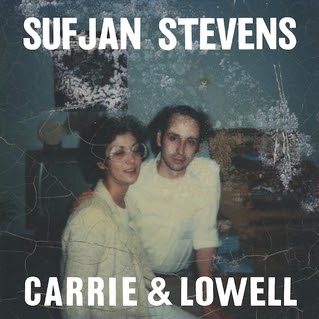 |
| Hove Book Group at their end of year seasonal celebration on 1st Dec 2016 |
Our favourite book that we discussed in 2016
1. “The Lost Europeans” (1959) by Emanuel Litvinoff
2. “London and the South-East” (2009) by David Szalay
3. “Remains of the Day” (1989) by Kazuo Ishiguro
* * * * * * * * * *
4. “The Trigger: The Hunt for Gavrilo Princip” (2015) by Tim Butcher
5. “The Bottle Factory Outing”
6. “My Revolutions”
9= “I Partridge” (2011) by Alan Partridge
9= “Seven Terrors” (2012) by Selvedin Avdić
9= “Djibouti” (2010) by Elmore Leonard
Our favourite music we discussed in 2016
1.= “Neu! ’75” (1975) by Neu!
1.= Hazy Cosmic Jive presents “Something in the Air” (2016) (Nigel’s Revolution mix)
3. “Christmas” (1999) by Low
* * * * * * * * * *
4. “The Who Sell Out” (1967) by The Who
5. “Carrie & Lowell” (2015) by Sufjan Stevens
6. “Give” (2011) by Balkan Beat Box (all except Robin)
7. “Born in the Echoes” (2015) by The Chemical Brothers
8. Hank Williams “Come September”
9. Keith Hayward presents “A Criminal Playlist”
Our favourite film we discussed in 2016
1 “No Man's Land (Bosnian: Ničija zemlja)” (2001) directed by Danis Tanović
2 “One Day In September” (1999) directed by Kevin Macdonald
3 “Tin Men” (1987) written and directed by Barry Levinson
* * * * * * * * * *
4 “Brian Clough: I Believe In Miracles” (2015) directed by Jonny Owen
5 “Punch-Drunk Love” (2002) directed by Paul Thomas Anderson
6 “Couscous (La Graine et le Mulet)” (2008) directed by Abdellatif Kechiche
7 “Sunshine” (2007) directed by Danny Boyle
9= “Kiss Kiss Bang Bang” (2005) directed by Shane Black
9= “Smoke Signals” (1998) directed by Chris Eyre
Our favourite unifying theme of 2016
1 Post Brexit Blues (The Lost Europeans/Neu!/Couscous)
2 Revolution (My Revolutions/“Something in the Air” comp/One day in Sept doc)
3 Sales and Selling (London and the South-East/The Who Sell Out/Tin Men)
* * * * * * * * * *
4 Europe/C&W/Sci Fi (?!) (The Trigger/Hank Williams/Sunshine)
6= Communication (Remains of the day/Carrie & Lowell/Punch-Drunk Love)
6= Criminal capers (Djibouti/“A Criminal Playlist” on Spotify/Kiss Kiss Bang Bang)
7 Balkan beauties (Seven Terrors/Give by Balkan Beat Box/No Man's Land)
8 Englishness Revisted (I Partridge/Chemical Brothers/Brian Clough)
9 Comedic Christmas (Bottle Factory/Low Xmas album/Smoke Signals)
The best book you read this year
Keith - Guitar theory for Dummies
Nigel: Jumpin' Jack Flash: David Litvinoff and the Rock’n’Roll Underworld by Keiron Pim
Robin: Remains of the Day
Tristan: This Changes Everything - Naomi Klein
What defined 2016...
Nigel: The death of Bowie and how it presaged a year of complete and utter shittyness
Keith: Brexit
Robin: The misery of world affairs (Trump and all the fascists in the US, Brexit, climate and environment, bombing of hospitals and use of chlorine gas in Syria, the 'post truth' world) and the prospect of Trump cancelling US involvement in Paris Agreement on Climate Change - truly miserable! On the plus side i have an inflatable canoe which we paddle on Lake Como!
Nick: just miserable
Tristan: Work changes: getting used to a smaller company; moving to New England House
The best thing about Book Group in 2016...
Nigel: The trademark humour and the camaraderie. I love you guys.
Keith: Devil’s Dyke photo
Robin: Its enduring beauty
Nick: the sex
Tristan: The (fairly) consistent high standard of the choices: I actively enjoyed almost all of them, which hasn't happened every year.
How we make Book Group even better...
Keith: It’s A Knockout style joker card for end of year voting
Nigel: It’s pretty damn perfect but…I believe I can now generally identify a great book (that we'll all say is great but use slightly different words), versus a book that is good but flawed but however is more likely to inspire a great discussion. Perhaps something to consider before finalising your selections?
Robin: How do you improve on perfection .... although perhaps a new pub as not convinced the Westy is our spiritual home and it doesn't sell Harveys!
Nick: more sex
Tristan: Impossible.
What else...
Nigel: Thanks for another great year of cultural discourse. Roll on 2017. Our 12 year anniversary is in Jan 2017.
Robin: The Book Group is invited to Italy and our flat on Lake Como for a special book group outing!! Thank you Nigel for organising everything for book group in 2016. As always seamlessly done!!!

























